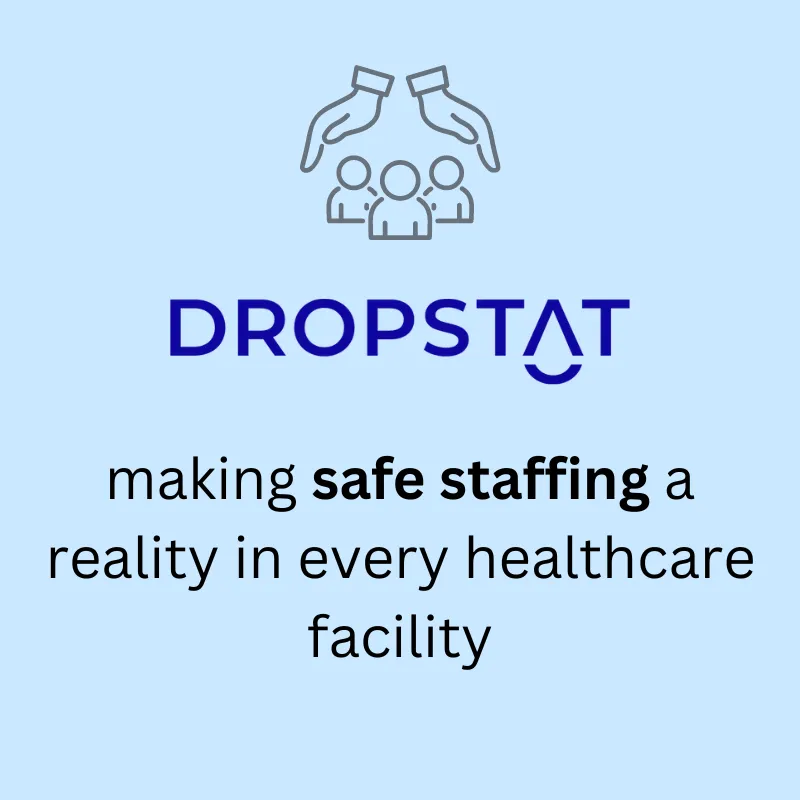What is employee morale?
Employee morale is the satisfaction, happiness, and overall well-being employees feel while on the job. Various factors, including workload, communication with management, workplace culture, and work-life balance, can impact employee morale. Low employee morale makes staff less productive and less engaged. High employee morale is the result of positive communication and a culture of support.
What are the benefits of strong employee morale in healthcare?
Employee morale affects nurses, patients, and the healthcare facility itself. Here are some of the key benefits of improving employee morale in healthcare:
- Increased productivity: When nurses are happy and motivated, they will be productive and efficient. They are more likely to go above and beyond their job duties and improve overall productivity.
- Improved employee retention: Happy nurses engaged in their work are less likely to quit their jobs. This reduces nurse turnover costs and ensures that the facility retains top nursing talent.
- Enhanced teamwork: When employees have strong morale, they collaborate effectively. Better team dynamics among nurses bring improved patient outcomes.
- Higher levels of patient satisfaction: Happy employees provide better service, resulting in better patient satisfaction and a good reputation for the facility.
- Increased staff engagement: When nurse employees feel they have value and support, they will contribute with full engagement.
- Improved patient care: Healthcare employees who are happy and motivated tend to provide better patient care. When healthcare professionals feel satisfied with their job, they are more likely to be engaged, proactive, and attentive to the needs of their patients.
- Cost savings: High employee morale can result in cost savings for healthcare organizations. When employees have motivation and engagement, they are less likely to make mistakes, resulting in fewer medical errors and lower costs associated with correcting mistakes.
- Good facility reputation: Healthcare organizations that have a good reputation for nurse satisfaction and engagement are more likely to attract and retain top talent. This can lead to improved patient outcomes and a better overall reputation in the medical community.
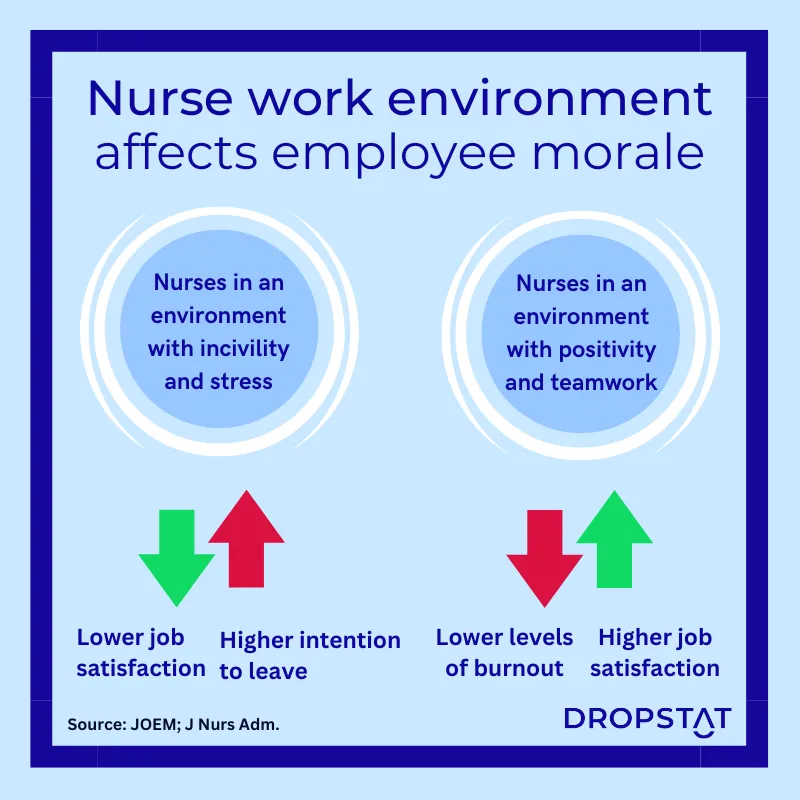
How to measure employee morale
Nurse managers can use several methods to measure employee morale, including:
- Pulse surveys: Pulse surveys are brief and regular surveys that follow employee attitudes, weekly or monthly, to track changes in employee morale over time.
- Sentiment analysis: Sentiment analysis involves using software to analyze written communication for negative sentiment.
- Performance metrics: Performance metrics such as low productivity or high turnover rates can indicate low morale. Tracking these metrics over time can help employers identify trends.
- Focus groups involve gathering a small group of employees to discuss their experiences and opinions. This can help organizations identify potential solutions.
Measuring employee morale requires a combination of different methods to gain a comprehensive understanding of employee attitudes. Nurse managers can work on improving morale among nurses and other healthcare workers to create a more positive work environment.
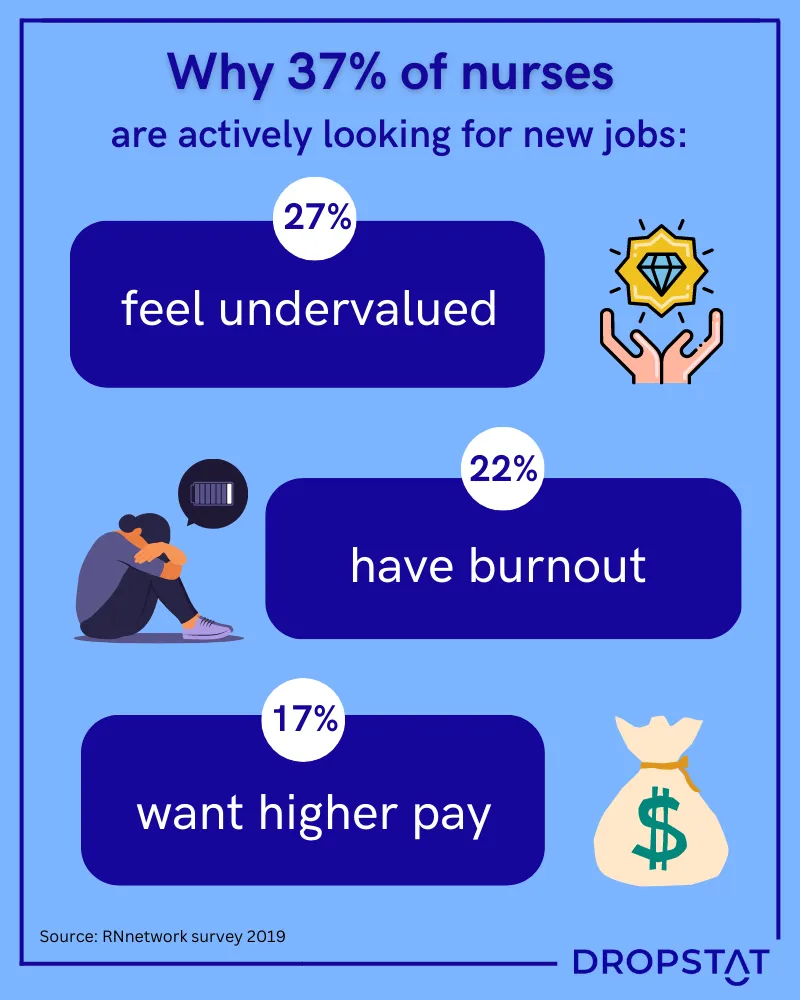
10 ways healthcare leaders can boost employee morale
Nurse managers need to be involved when determining how to improve employee morale since they are key figures in impacting nurse satisfaction.
Here are 10 ideas to boost employee morale in healthcare.
- Improve manager/worker relationships: A positive relationship between healthcare managers and employees leads to increased trust, communication, and job satisfaction. Healthcare managers can build positive relationships with their staff through regular communication, recognition of achievements, and support for personal and professional development.
- Let go of leaders/employees who damage morale: Nurses or nurse managers who spread negativity or are not aligned with the facility’s ideals can significantly impact morale. Removing these employees can significantly improve employee morale and workplace culture in the facility.
- Ensure that teams are fully staffed: Overworking nurses or understaffing teams can lead to burnout and low employee morale. Ensuring that nurse shift schedules are fair can help balance the workloads and prevent employee burnout.
- Celebrate significant dates/milestones for employees: Celebrating nurses’ birthdays, work anniversaries, and other milestones can show employees they are valued and appreciated.
- Keep on top of employee-morale trends: Regularly monitoring employee morale can help identify issues so you can address them before they become bigger problems.
- Set up a paid time-off policy, so employees can calmly schedule vacation days: A robust paid-time-off policy can reduce stress and increase work-life balance, leading to higher morale.
- Improve the onboarding process: A comprehensive onboarding for new employees can help new nurses feel welcomed and prepared for their new role, leading to increased job satisfaction.
- Reassess task distribution: Reassigning tasks based on employee strengths and workload can prevent burnout and help nurses feel more engaged in their work.
- Pay attention to break rooms: A clean, comfortable, and welcoming break room can provide space for nurses and other medical staff to relax and recharge, leading to increased productivity and morale.
- Offer the medical staff an EAP: Healthcare workers often absorb high amounts of stress and suffer from burnout. Offering an employee assistance program (EAP) can provide resources and support for mental health and wellness.
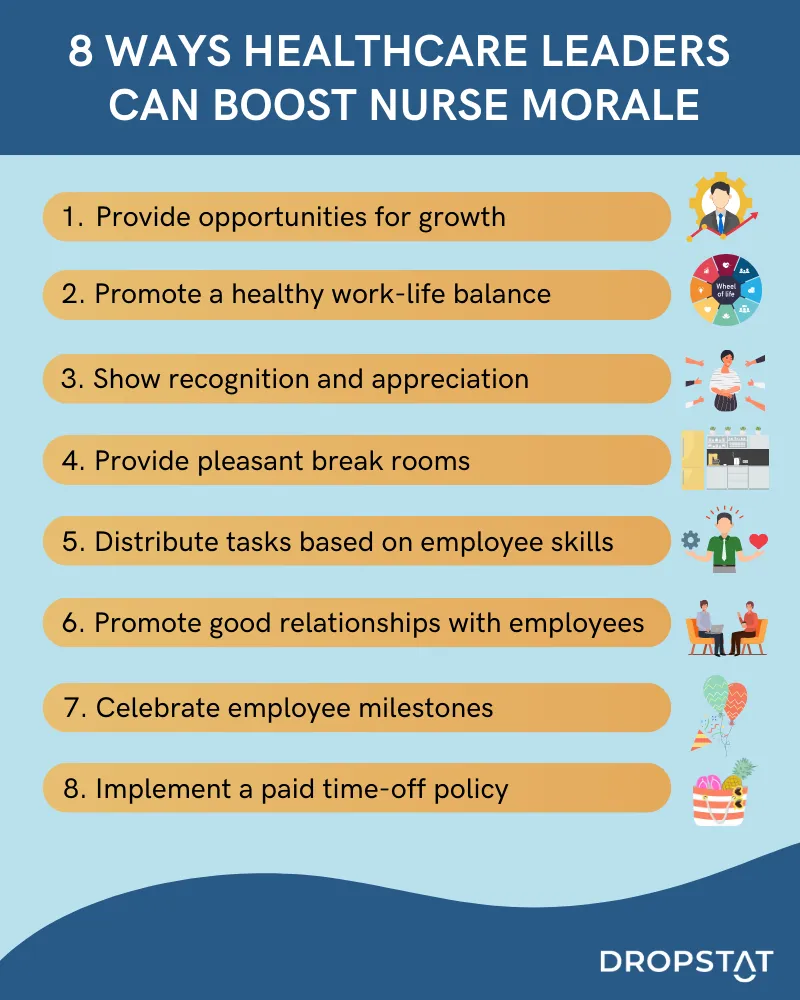
How Dropstat can help healthcare facilities improve employee morale in the workplace
Dropstat is an advanced AI platform designed for the demands of the healthcare industry. Dropstat ensures each shift is filled according to the required nurse-patient ratios. This makes sure nurses aren’t overworked, which strongly contributes to positive employee morale.
Another popular feature in Dropstat is the Gratitude Feed which is hugely successful in making nurses feel recognized and appreciated by both managers and colleagues. Its unprecedented success comes from nurse managers being able to communicate their appreciation or share kind work with their staff and from the nurses’ being able to share thanks with another nurse who lent a helping hand.
Schedule a demo today to learn more about how Dropstat can boost employee morale and job satisfaction in your facility.
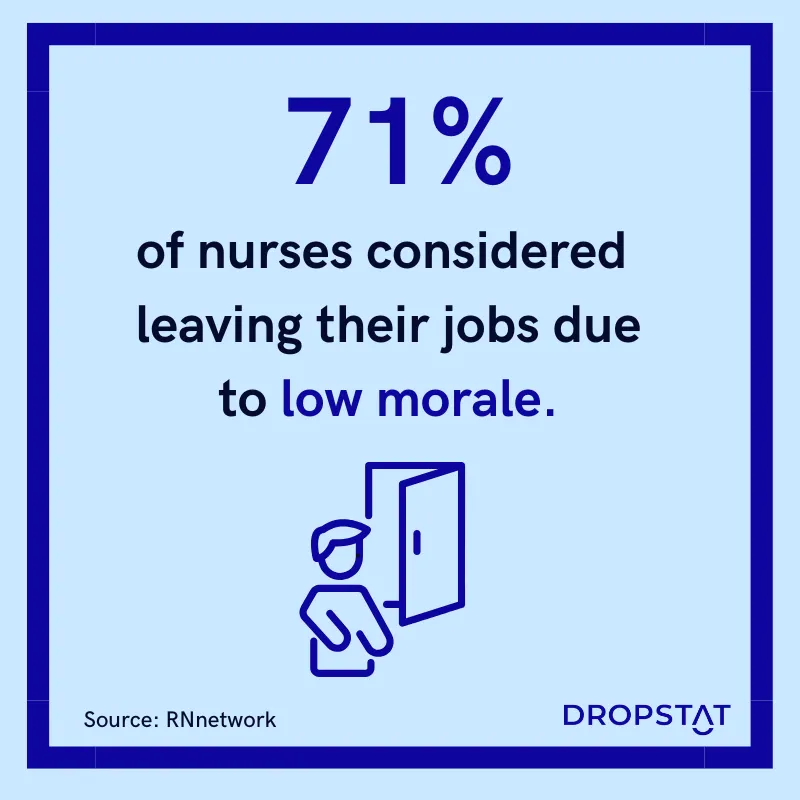
FAQ’S
How can managers effectively communicate with their staff to improve nurse morale?
Nurse managers can hold regular meetings with their staff to listen to their feedback and ideas and address any concerns that arise. They can also use employee surveys or staff feedback forms to gather anonymous input and suggestions. Creating an open-door policy and encouraging communication and collaboration can help foster a positive work environment and boost employee morale.
How can nurse managers boost employee morale by supporting their staff’s professional development?
Nurse managers can offer ongoing education and training opportunities and encourage staff to take on leadership or committee roles within the institution. Employees who feel that their employer invests in their development are more likely to stay with the company and work harder to achieve their goals which strongly contributes to employee morale.
How can nurse managers create a culture of teamwork to promote employee morale?
Nurse managers can lead by example. By modeling positive behavior, encouraging teamwork and collaboration, and facilitating team-building activities, nurse managers show that boosting employee morale is important to them. They can also promote an environment of trust and transparency, where the staff feels comfortable sharing feedback and ideas and can work together to problem-solve and support each other.
